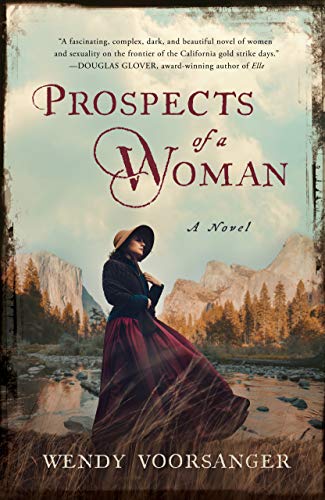Prospects of a Woman
Elisabeth Parker and her husband Nate leave Concord, Massachusetts for Gold Rush-era California in search of her estranged father, who the newlyweds hope will help them get established on his claim. Finding him gives Elisabeth the first in a succession of disappointments that she must endure in Wendy Voorsanger’s Prospects of a Woman. She and Nate attempt to work the claim, but grow apart as she discovers her own capacity for entrepreneurship and the hard labor of frontier life, as well as Nate’s true sexuality. As her marriage unravels, she looks elsewhere for passion, finding work, friends, and a local man for a lover. The narrative is interspersed with letters Elisabeth writes back to her friend, Louisa May Alcott.
From 1850 to 1853, Elisabeth’s story moves between the gold country on the American River, two boomtowns on the edge of the hills, and the San Francisco of the rush, where new enterprises like the Ghirardelli Chocolate Company have just been established. Elisabeth comes into her own over the course of the novel, and overall this is handled well. The strength of Prospects of a Woman lies in its descriptions of the physical beauty of the gold country and early San Francisco.
As a Californian descended from Gold Rush immigrants and raised on family stories of early 20th-century San Francisco, I was eager to read this novel, and all the more disappointed in its significant flaws. I found the novel’s pacing to be rather off, with important characters introduced very late. Voorsanger constantly turns adverbs into adjectives, which she places after nouns (“Come Monday morning, he always made a pot of thistle tea and kissed her passionate”). The sexual content in the novel is poorly handled, veering from ethereal yet plot-and-character-relevant, to overly graphic and gratuitous. I advise readers interested in Gold Rush California or 19th-century women to look elsewhere.










